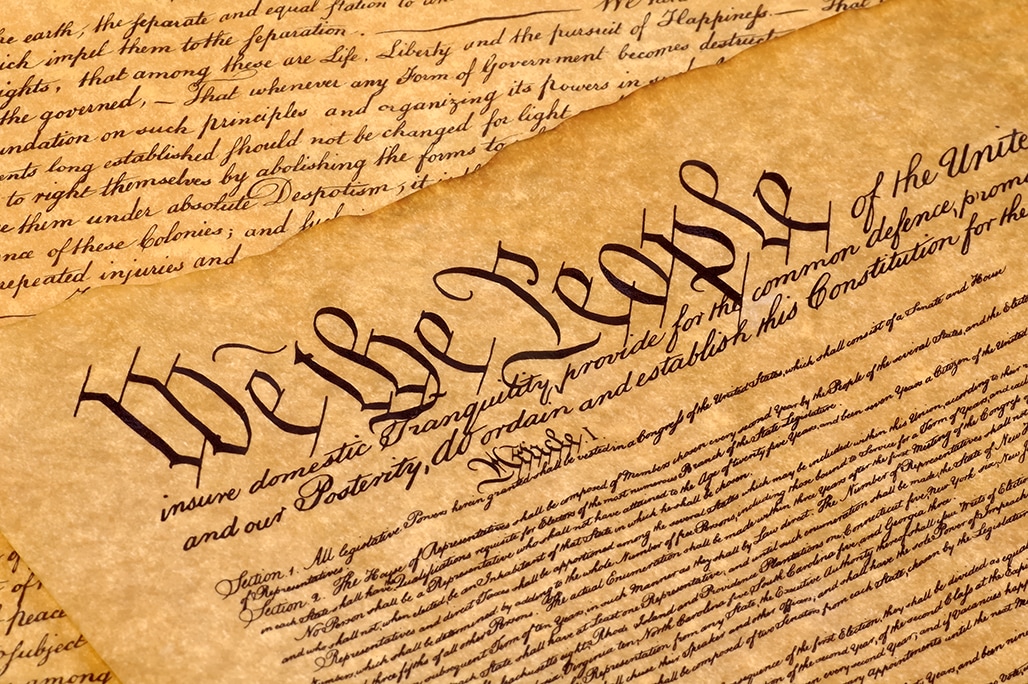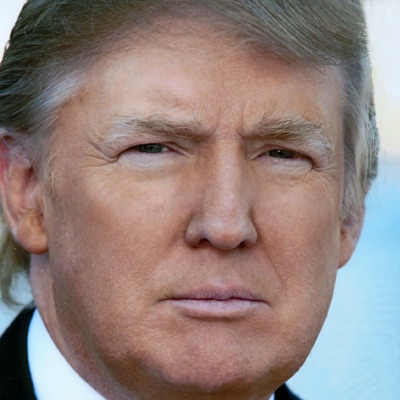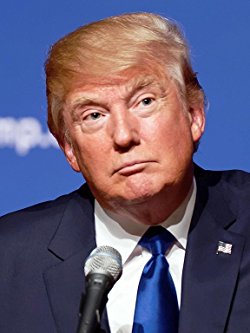With Trump being president elect, many people have been asking, “What is an impeachable offense?” I am not a constitutional scholar, but I’ve worked on projects related to this enough to speak on it, and to know that the answer is not simple. The Constitution reads “The President, Vice President, and all civil officers of the United States” may be impeached and removed only for “treason, bribery, or other high crimes and misdemeanors.”
We have a reasonable understanding of what treason and bribery are, and statutes in the books help us to evaluate these words. However, “high crimes and misdemeanors” is a bit more vague, and is actually language borrowed from old British law. So if we are to interpret the intent of the framers, we need to interpret how this language was used in Britain at the time. Without digging into the weeds too far, it is initially important to realize that the word “high” does not refer to how egregious the offensive actions are. Rather, “high” refers to the office the official holds. The reason this is important, is that it is meant to call attention to the fact that the public grants powers to these officials (like military power) that the average citizen does not wield. Therefore, the type of offenses these officials can commit is outside the bounds of the criminal law that has been fashioned for the average citizen. Therefore, behavior that might be considered a “high” crime may break no law written in a law book. It is a crime which is unique to the powers wielded by the “high” office. Lying to the public about the nature of secret military intelligence related to a pending war, is an example of something that you and I cannot do, but is a “high” crime.
Of course, this still leaves a lot of room for interpretation. So, who does the interpretation? Unfortunately, it is left to the House of Representatives to determine what constitutes an impeachable offense. This means that the process is essentially political. So, the House of Representatives can decide that a president’s willingness to perjure himself in order to avoid talking about his sex life is impeachable, while lying to Congress and the public to initiate a war which kills hundreds of thousands of people is not impeachable. Given what I laid out above, we see that that lying to a courtroom about your love affair is not something unique to the power of the presidency, but it is clear that lying about military intelligence regarding a pending war is specific to the office. So, while we might be able to come up with some guidelines about what SHOULD be considered impeachable, ultimately it is up to the House of Representatives.
This brings us to another point, what is the effect of pursuing impeachment for partisan purposes as opposed to more legitimate purposes? There is a long and bloodied history in England that led to the creation of impeachment. Impeachment is a way to avoid some of the biggest calamities (think war) that can be caused by a runaway executive. It didn’t come about willy-nilly, but it’s necessity became obvious as a result of a destructive period in England that included the beheading of Kings. Therefore, it should be revered as a tool that we only use (but we definitely use) when an official commits an egregious “high” crime. When the Japanese were interned during World War II, we missed our opportunity to impeach FDR. However, our country did well to threaten Nixon with impeachment. Nixon’s resignation reinforced the power and usefulness of the impeachment tool. Unfortunately, the attempt to impeach Clinton exposed a weakness in the process, that the House of Representatives can decide for partisan reasons to pursue impeachment. That view was only strengthened when the House of Representatives failed to pursue impeachment when George W. Bush lied to Congress and the American people regarding the war in Iraq. As a result, many people see impeachment today as merely a partisan way to threaten and possibly remove your political opponents from office.
So how do we breathe life back into impeachment? Unfortunately, presidents now regularly engage in behavior that would’ve been considered impeachable early in American history. It would be difficult to name a president in the last 50 years who would be immune. Certainly our use of drones to bomb foreign countries with whom we are not at war (Bush/Obama) would’ve easily been considered an impeachable offense a hundred years ago. However, most of the impeachable offenses Obama has committed in office pale in comparison to his predecessor. Does that mean we should not pursue impeachment of Obama? This is a difficult question. If you fail to impeach someone who commits larger offenses, but then impeach someone who commits lesser offenses (who also happens to be our first black president), what does this do to the perceived legitimacy of the impeachment tool? I would argue that it further diminishes impeachment as a legitimate process. That being said, I would have a hard time opposing impeachment of a president who bombs other countries without first getting a declaration of war by Congress.
So again, to breathe life back into impeachment, I believe it is important to use the tool the next time a president commits a “high crime” that is seen as being anomalous given current norms for behavior as president. Unfortunately, a drone strike is not in this category. Once we have re-legitimized the tool of impeachment through its use in a way that is seen by the public to be obviously appropriate, I believe we could start to implement the tool more frequently, and with some of the behaviors that have become normalized over the last number of decades (like using drone strikes without a declaration of war). But first we must put impeachment back into the category of a legitimate tool in the eyes of the public.
Currently, there is a lot of discussion regarding whether Trump should be impeached. The problem with this is that he is currently not president (as of December, 2016). Therefore, he cannot yet have committed a “high crime,” because he has not yet had access to the high office. On the other hand, Trump has made many campaign promises which, were he to follow through on them, would constitute fairly egregious high crimes. A few of these are the infringement on First Amendment rights (taking citizenship away from people who burn flags), restricting immigration based upon religious affiliation, and promising to use torture techniques beyond even what George W. Bush allowed. So, it may be that soon we will be in a position where pursuing impeachment is legitimate and urgent. However, until then we should attempt to temper our rhetoric. We don’t want to further delegitimize impeachment by seeming to pursue it for partisan reasons. Although, we should be very clear of our intent to pursue it if he does engage in these behaviors.
We have a reasonable understanding of what treason and bribery are, and statutes in the books help us to evaluate these words. However, “high crimes and misdemeanors” is a bit more vague, and is actually language borrowed from old British law. So if we are to interpret the intent of the framers, we need to interpret how this language was used in Britain at the time. Without digging into the weeds too far, it is initially important to realize that the word “high” does not refer to how egregious the offensive actions are. Rather, “high” refers to the office the official holds. The reason this is important, is that it is meant to call attention to the fact that the public grants powers to these officials (like military power) that the average citizen does not wield. Therefore, the type of offenses these officials can commit is outside the bounds of the criminal law that has been fashioned for the average citizen. Therefore, behavior that might be considered a “high” crime may break no law written in a law book. It is a crime which is unique to the powers wielded by the “high” office. Lying to the public about the nature of secret military intelligence related to a pending war, is an example of something that you and I cannot do, but is a “high” crime.
Of course, this still leaves a lot of room for interpretation. So, who does the interpretation? Unfortunately, it is left to the House of Representatives to determine what constitutes an impeachable offense. This means that the process is essentially political. So, the House of Representatives can decide that a president’s willingness to perjure himself in order to avoid talking about his sex life is impeachable, while lying to Congress and the public to initiate a war which kills hundreds of thousands of people is not impeachable. Given what I laid out above, we see that that lying to a courtroom about your love affair is not something unique to the power of the presidency, but it is clear that lying about military intelligence regarding a pending war is specific to the office. So, while we might be able to come up with some guidelines about what SHOULD be considered impeachable, ultimately it is up to the House of Representatives.
This brings us to another point, what is the effect of pursuing impeachment for partisan purposes as opposed to more legitimate purposes? There is a long and bloodied history in England that led to the creation of impeachment. Impeachment is a way to avoid some of the biggest calamities (think war) that can be caused by a runaway executive. It didn’t come about willy-nilly, but it’s necessity became obvious as a result of a destructive period in England that included the beheading of Kings. Therefore, it should be revered as a tool that we only use (but we definitely use) when an official commits an egregious “high” crime. When the Japanese were interned during World War II, we missed our opportunity to impeach FDR. However, our country did well to threaten Nixon with impeachment. Nixon’s resignation reinforced the power and usefulness of the impeachment tool. Unfortunately, the attempt to impeach Clinton exposed a weakness in the process, that the House of Representatives can decide for partisan reasons to pursue impeachment. That view was only strengthened when the House of Representatives failed to pursue impeachment when George W. Bush lied to Congress and the American people regarding the war in Iraq. As a result, many people see impeachment today as merely a partisan way to threaten and possibly remove your political opponents from office.
So how do we breathe life back into impeachment? Unfortunately, presidents now regularly engage in behavior that would’ve been considered impeachable early in American history. It would be difficult to name a president in the last 50 years who would be immune. Certainly our use of drones to bomb foreign countries with whom we are not at war (Bush/Obama) would’ve easily been considered an impeachable offense a hundred years ago. However, most of the impeachable offenses Obama has committed in office pale in comparison to his predecessor. Does that mean we should not pursue impeachment of Obama? This is a difficult question. If you fail to impeach someone who commits larger offenses, but then impeach someone who commits lesser offenses (who also happens to be our first black president), what does this do to the perceived legitimacy of the impeachment tool? I would argue that it further diminishes impeachment as a legitimate process. That being said, I would have a hard time opposing impeachment of a president who bombs other countries without first getting a declaration of war by Congress.
So again, to breathe life back into impeachment, I believe it is important to use the tool the next time a president commits a “high crime” that is seen as being anomalous given current norms for behavior as president. Unfortunately, a drone strike is not in this category. Once we have re-legitimized the tool of impeachment through its use in a way that is seen by the public to be obviously appropriate, I believe we could start to implement the tool more frequently, and with some of the behaviors that have become normalized over the last number of decades (like using drone strikes without a declaration of war). But first we must put impeachment back into the category of a legitimate tool in the eyes of the public.
Currently, there is a lot of discussion regarding whether Trump should be impeached. The problem with this is that he is currently not president (as of December, 2016). Therefore, he cannot yet have committed a “high crime,” because he has not yet had access to the high office. On the other hand, Trump has made many campaign promises which, were he to follow through on them, would constitute fairly egregious high crimes. A few of these are the infringement on First Amendment rights (taking citizenship away from people who burn flags), restricting immigration based upon religious affiliation, and promising to use torture techniques beyond even what George W. Bush allowed. So, it may be that soon we will be in a position where pursuing impeachment is legitimate and urgent. However, until then we should attempt to temper our rhetoric. We don’t want to further delegitimize impeachment by seeming to pursue it for partisan reasons. Although, we should be very clear of our intent to pursue it if he does engage in these behaviors.





 RSS Feed
RSS Feed
